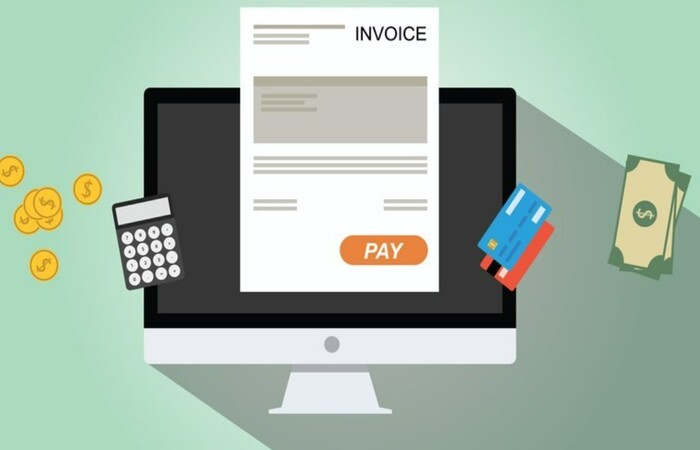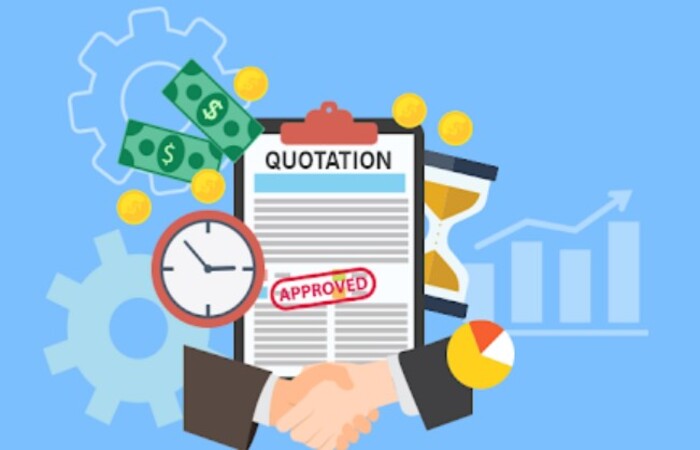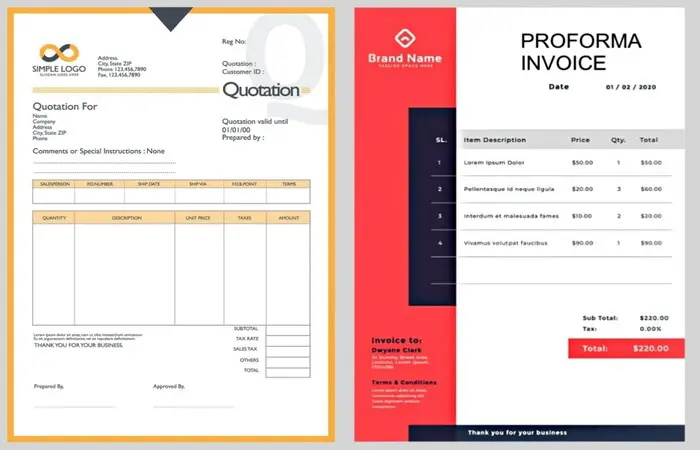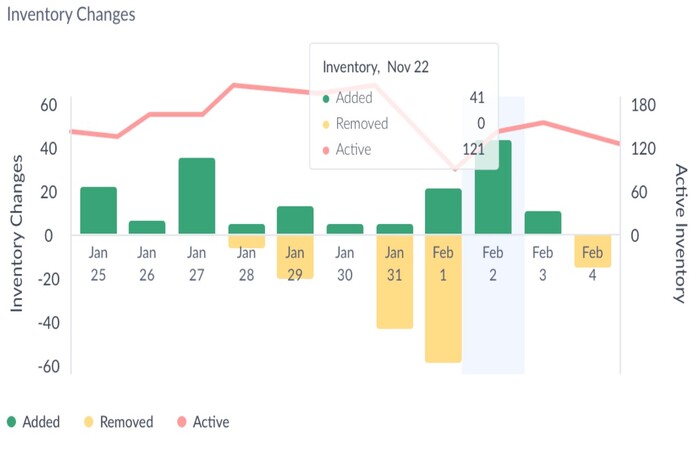Whether you’re providing a service or products to a customer or you’re the one purchasing them, you need to know the difference between an invoice and a quotation.Both documents specify the selling or purchasing cost of the item. However, there are several other details that each document includes that make them different from one another. Invoice Vs Quotation.
A price quote is issued before the delivery of goods, or services, or before a project starts, and details the projected costs. An invoice is issued after the delivery of goods, or services or after a project is completed and details all accrued costs.
Indeed, quotes and invoices are an essential part of the traditional buying and selling process, and it’s important to know what information each one should include and when they’re appropriate.
Invoice Vs Quotation | Detailed Comparison
Here are the top differences you need to know between an invoice and a quotation.
The Purpose
Invoice Vs Quotation. When submitting an important financial document, you must be clear about the purpose of the document in question. In the case of invoices and quotations, it’s all about communicating the cost of a potential service or product that a prospective client is considering buying.
An invoice is a document that requests payment for a service already performed or a product that’s already changed hands.
Thus, the purpose of a quote is to inform the customer exactly what the service or product by the seller includes. And how much it’s expected to cost.
The Submission Time
Invoice Vs Quotation. The submission timing is central to this discussion, following the document’s purpose.
Since the purpose of a quotation is to tell a client how much something will cost, the seller submits the quote before handing out any goods or rendering any services.
A business sends an invoice to a customer once they perform a service or exchange goods. In essence, an invoice serves as a request for payment.
One Is Binding, And The Other Isn’t
Invoice Vs Quotation. A quote is an offer outlining the details and the sale’s terms, including the price and other essential details. Because the seller submits a quote before the customer receives anything, it’s more of an offer to sell goods or services.
Because it’s an offer, a quote is not a binding contract between a buyer and seller—either party can walk away at this point. The aim, however, is for the customer to accept the quote and for the sale to progress.
On the other side, an invoice is binding. It outlines the details of a service that’s already been performed or a product that’s already changed hands.
Since the buyer has approved the quote and the seller has agreed to its terms, the buyer is responsible for complying with the deal and paying the invoice accordingly.
See Also: Cannot Start Microsoft Outlook The Set Of Folders Cannot Be Opened | Fixed
The Format
Invoice Vs Quotation. Because they have different purposes, the format of invoices and quotes are quite different. A quote is more of an offer, so it’s generally slightly less formal (although not always). It may take the form of a letter, email, WhatsApp message, or verbal discussion outlining the terms of the potential sale, prices, and other important information.
Whereas an invoice is a formal and binding document. It follows proper protocol and generally appears as a financial document with line item prices, taxes, totals, and other details laid out. To ensure inclusion of all necessary details and avoid errors or misunderstandings, businesses often utilize a printable invoice template.
Changing Inventory
Invoice Vs Quotation. If you’re looking at the technical side of things, from an accounting perspective, the difference in how invoices and quotes affect your inventory is essential.
Let’s consider an example: You’re a distributor of books, and each book costs $10. You currently have 50 books in stock.
Because a quote is an offer that has yet to get into confirmation, it does not affect your inventory. That is, even once you’ve sent the customer your quote of $10 for the book, they still need to decide whether or not they want to go through with the deal. In the interim, your inventory stays at 50.
Remember that when you send an invoice to the customer after delivering the product or service, your inventory changes. In this example, your inventory will decrease from 50 books to 49.
See Also: 7 Ways To Fix Microsoft Word Not Responding In Windows | Easy Fixes
FAQs
Can a Quote Change?
Absolutely. A quote details the sale terms. The document's purpose is for the customer to approve it. If the customer doesn’t approve, the quote can go for edition and resubmission for approval, as it's before any sale.
What Happens if There’s a Mistake on an Invoice?
In case of a mistake on an invoice, it cannot get ignored. Thus, the business issues a cancellation invoice with a new invoice number. It will reflect a negative number to balance the mistake and the original invoice details. After this, the business can send a new, correct invoice.
Should a Quote be in Writing?
No, a quote doesn’t have to be a formal, written document. An invoice, however, must be in writing because it’s a formal document and an official request for payment. A quote can also be in the form of a verbal agreement between the buyer and seller.
How Does an Invoice Affect Your Inventory?
Since an invoice gets issued after exchanging goods or services, it acts as a request for payment. A quote doesn’t influence your inventory since it’s merely a proposed sale—it hasn’t occurred yet.
What Details Must An Invoice Include?
An invoice number, the sellers/business’s name, address, and contact details, the buyer/other company’s name and address, a description of the goods/services, the date of the goods provided, the date of the invoice, the amount/s charged, taxes, and the final total owed.
See Also: How Do I Open OST Files In MS Outlook?
Conclusion
Thus, now you know invoice vs quotation. A quote is not an invoice, and vice versa. Each document fulfills a different purpose and is important in its own right. Knowing when there is a requirement for a quote, and invoice is essential for buyers and sellers and can prevent costly mistakes.

Gravit Sinha: Founder of ValidEdge, a problem-solving website, driven by his lifelong passion for fixing issues.

